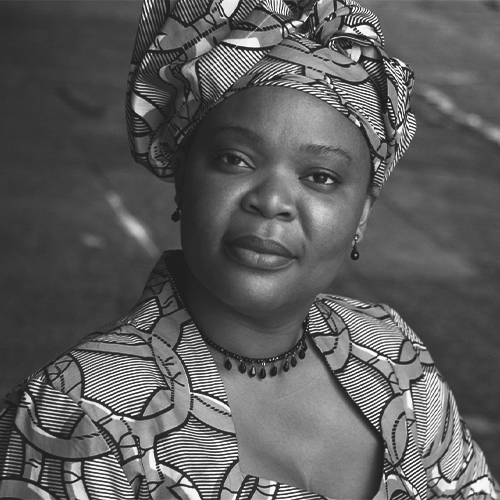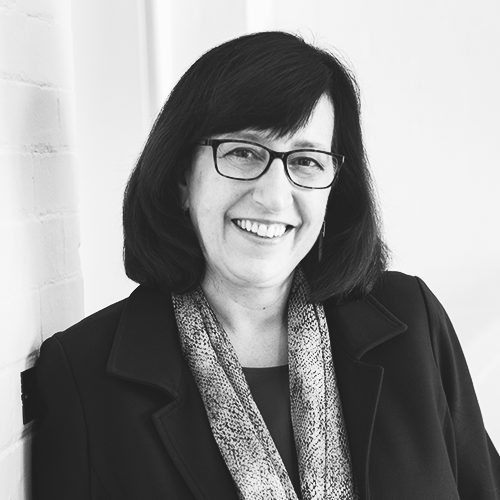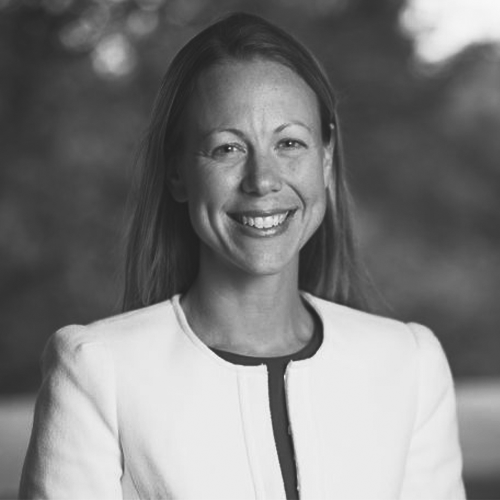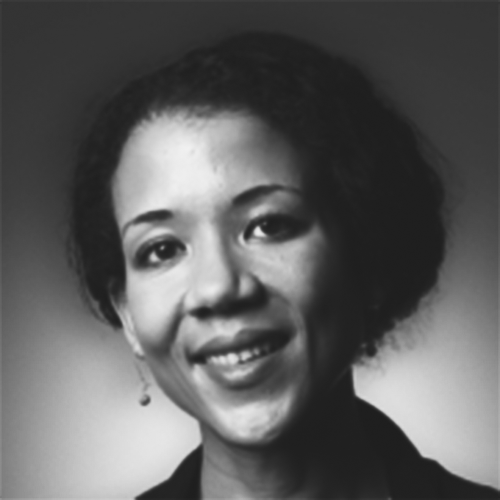Nobel Peace laureate Leymah Gbowee is a Liberian peace activist, trained social worker, and women’s rights advocate. Ms. Gbowee currently serves as executive director of the Women, Peace, and Security Program at Columbia University’s Earth Institute and is the founder and current president of the Gbowee Peace Foundation Africa; founding head of the Liberia Reconciliation Initiative; and co-founder and former executive director of the Women, Peace, and Security Network Africa. She is also a founding member and former Liberian coordinator of Women in Peacebuilding Network/West Africa Network for Peacebuilding. Ms. Gbowee’s leadership of the Women of Liberia Mass Action for Peace — which brought together Christian and Muslim women in a nonviolent movement that played a pivotal role in ending Liberia’s civil war in 2003 — is chronicled in her memoir, “Mighty Be Our Powers,” and in the award-winning documentary, “Pray the Devil Back to Hell.”
Forging Lasting Peace
Event Overview
The Bartels World Affairs Lecture is a signature event of the Mario Einaudi Center for International Studies. Part of Einaudi's work on Inequalities, Identities, and Justice, this year's lecture is co-sponsored by Einaudi's Institute for African Development and Reppy Institute for Peace and Conflict Studies, in cooperation with Peace is Loud. The lecture and related events are made possible by the generosity of Henry E. Bartels ’48 and Nancy Horton Bartels ’48.
RESOURCES / NEXT STEPS
Einaudi Center
What You'll Learn
- What tactics and methods a nonviolent peace movement can use to find success in ending a violent conflict
- How interfaith dialogue and community building can help find commonalities across borders and among different groups
- How sisterhood, prayer, and sex changed a nation at war
Speakers
Martha E. Pollack is the fourteenth president of Cornell University and professor of computer science, information science, and linguistics. She took office on April 17, 2017.
As the only land-grant university in the Ivy League, Cornell combines the highest standards of teaching and research with a public mission to discover, preserve, and disseminate knowledge. President Pollack is committed to building upon Cornell’s academic distinction and unique strengths, investing in the creativity and experience of our exceptional faculty while also enhancing our culture of “educational verve” through new, evidence-based approaches to teaching and learning. She sees Cornell’s foundational commitment to diversity and equity as central to our identity and success, and has engaged the entire university in the work of building an open, inclusive community whose members communicate effectively across differences. In her leadership of Cornell’s many units and campuses, President Pollack works to cultivate productive and meaningful synergies across disciplines and geographies, realizing a vision of “One Cornell” that capitalizes on the complementary strengths of our urban and rural identities.
An expert in artificial intelligence with a research focus on natural-language processing, automated planning, and the design of assistive technology for people with cognitive impairment, President Pollack earned a Bachelor’s degree in Linguistics at Dartmouth College and an M.S. and Ph.D. in Computer and Information Science at the University of Pennsylvania. She was previously provost and Executive Vice President for Academic Affairs at the University of Michigan, where she was also a professor of computer science and information.
Rachel Beatty Riedl is the Director of Mario Einaudi Center for International Studies as well as the Einaudi Center’s John S. Knight Professor of International Studies and a professor in the Department of Government and Cornell Jeb E. Brooks School of Public Policy. Professor Riedl’s research interests include institutional development in new democracies, local governance and decentralization, and authoritarian regime legacies in Africa. Her most recent book, “From Pews to Politics: Religious Sermons and Political Participation in Africa,” coauthored with Gwyneth McClendon, was published in September 2019. “Authoritarian Origins of Democratic Party Systems in Africa” (2014), her previous book, won the African Politics Best Book award. Professor Riedl also cohosts the Ufahamu Africa podcast about life and politics on the African continent. Most recently, Professor Riedl was a fellow at the Nantes Institute for Advanced Study and a Fulbright scholar. Previously, she was director of the Program of African Studies and an associate professor in the Department of Political Science at Northwestern University.
Chantal Thomas is Professor of Law at Cornell Law School, where she also directs the Clarke Initiative for Law and Development in the Middle East and North Africa. Professor Thomas teaches in the areas of Law and Development and International Economic Law.

Nobel Peace laureate Leymah Gbowee is a Liberian peace activist, trained social worker, and women’s rights advocate. Ms. Gbowee currently serves as executive director of the Women, Peace, and Security Program at Columbia University’s Earth Institute and is the founder and current president of the Gbowee Peace Foundation Africa; founding head of the Liberia Reconciliation Initiative; and co-founder and former executive director of the Women, Peace, and Security Network Africa. She is also a founding member and former Liberian coordinator of Women in Peacebuilding Network/West Africa Network for Peacebuilding. Ms. Gbowee’s leadership of the Women of Liberia Mass Action for Peace — which brought together Christian and Muslim women in a nonviolent movement that played a pivotal role in ending Liberia’s civil war in 2003 — is chronicled in her memoir, “Mighty Be Our Powers,” and in the award-winning documentary, “Pray the Devil Back to Hell.”

Martha E. Pollack is the fourteenth president of Cornell University and professor of computer science, information science, and linguistics. She took office on April 17, 2017.
As the only land-grant university in the Ivy League, Cornell combines the highest standards of teaching and research with a public mission to discover, preserve, and disseminate knowledge. President Pollack is committed to building upon Cornell’s academic distinction and unique strengths, investing in the creativity and experience of our exceptional faculty while also enhancing our culture of “educational verve” through new, evidence-based approaches to teaching and learning. She sees Cornell’s foundational commitment to diversity and equity as central to our identity and success, and has engaged the entire university in the work of building an open, inclusive community whose members communicate effectively across differences. In her leadership of Cornell’s many units and campuses, President Pollack works to cultivate productive and meaningful synergies across disciplines and geographies, realizing a vision of “One Cornell” that capitalizes on the complementary strengths of our urban and rural identities.
An expert in artificial intelligence with a research focus on natural-language processing, automated planning, and the design of assistive technology for people with cognitive impairment, President Pollack earned a Bachelor’s degree in Linguistics at Dartmouth College and an M.S. and Ph.D. in Computer and Information Science at the University of Pennsylvania. She was previously provost and Executive Vice President for Academic Affairs at the University of Michigan, where she was also a professor of computer science and information.

Rachel Beatty Riedl is the Director of Mario Einaudi Center for International Studies as well as the Einaudi Center’s John S. Knight Professor of International Studies and a professor in the Department of Government and Cornell Jeb E. Brooks School of Public Policy. Professor Riedl’s research interests include institutional development in new democracies, local governance and decentralization, and authoritarian regime legacies in Africa. Her most recent book, “From Pews to Politics: Religious Sermons and Political Participation in Africa,” coauthored with Gwyneth McClendon, was published in September 2019. “Authoritarian Origins of Democratic Party Systems in Africa” (2014), her previous book, won the African Politics Best Book award. Professor Riedl also cohosts the Ufahamu Africa podcast about life and politics on the African continent. Most recently, Professor Riedl was a fellow at the Nantes Institute for Advanced Study and a Fulbright scholar. Previously, she was director of the Program of African Studies and an associate professor in the Department of Political Science at Northwestern University.

Chantal Thomas is Professor of Law at Cornell Law School, where she also directs the Clarke Initiative for Law and Development in the Middle East and North Africa. Professor Thomas teaches in the areas of Law and Development and International Economic Law.
- View slide #1
- View slide #2
- View slide #3
- View slide #4
View Keynote by completing the form below.
You're Registered!
https://ecornell.cornell.edu/keynotes/view/K050322/
Add to Calendar 5:00 PM - 6:30 PM EDT
The Bartels World Affairs Lecture is a signature event of the Mario Einaudi Center for International Studies. Part of Einaudi's work on Inequalities, Identities, and Justice, this year's lecture is co-sponsored by Einaudi's Institute for African Development and Reppy Institute for Peace and Conflict Studies, in cooperation with Peace is Loud. The lecture and related events are made possible by the generosity of Henry E. Bartels ’48 and Nancy Horton Bartels ’48.
RESOURCES / NEXT STEPS
Einaudi Centerhttps://ecornell.cornell.edu/keynotes/view/K050322/primaryAmerica/New_YorkeCornell
